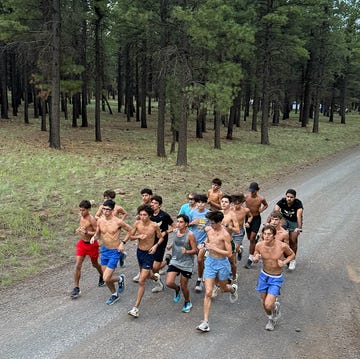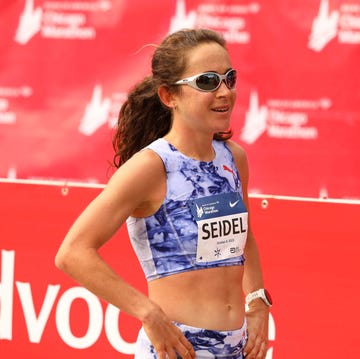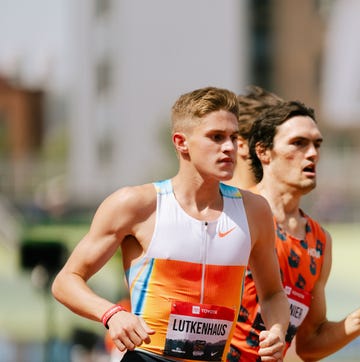Max Siegel, the controversial CEO of USA Track & Field, the nonprofit organization that “drives competitive excellence and popular engagement in the sport of track,” made $1.26 million in 2022, according to its most recent tax forms.
That’s far less than he made in 2021, when Siegel took home $3.8 million.
USATF posted revenue of $37.9 million, up from the $33.7 million revenue it had in 2021. But it also had expenses of $44.7 million, meaning the organization had a deficit of $6.7 million for 2022. In 2021, it lost $458,000.
A note posted to the first page of its tax return, known as a Form 990, appeared to put responsibility for the deficit on decisions made nine years ago by the 2014 board of directors of USATF.
“This 990 reflects planned expenses related to the 2022 World Athletics Championships,” the note reads. “The revenue less expenses line reflects USATF’s payments in support of that event in line with the financial obligation made by the Board of Directors in September of 2014. Final payment was made by USATF to the local organizing committee in 2022, the year of the event.”
Siegel, who has been the CEO of USATF since May 1, 2012, has also served on the board of directors during his tenure.
Neither USATF nor Siegel immediately responded to a request for comment from Runner’s World.
Siegel’s pay has long been a topic of conversation around the sport, and it prompted an outcry from athletes and others last year, when his compensation package of $3.8 million became public.
Even at his 2022 salary level of $1.26 million, Siegel earns more than Sarah Hirshland, the CEO of the U.S. Olympic and Paralympic Committee, which oversees all the Olympic sports national governing bodies like USATF. Hirshland’s 2022 pay was $1.14 million, and the USOPC had revenues of $357 million, 10 times that of USATF. The USOPC also had a profit of $61.7 million in 2022.
On November 8, USATF announced that Siegel had signed a new, five-year contract, keeping him at the helm of the organization through the 2028 Olympics in Los Angeles.
In that announcement, USATF cited Siegel’s “transformative leadership of USATF” which has “propelled the organization to achieve historic success, marked by record financial growth.”
Little is known about how Siegel’s performance is evaluated every year by USATF’s board of directors, the body that is charged with overseeing him. Dolf Berle, a USATF board member who leads the board’s compensation committee, which negotiates Siegel’s contract, declined to comment to Runner’s World in a text message on November 20. He referred questions back to USATF.
Siegel isn’t the only one who is well compensated for his work at USATF. According to the most recent Form 990, the total staff payroll in 2022 was $8.9 million, nearly a quarter of the nonprofit’s revenues, and 16 of USATF’s 97 employees made more than $100,000 annually. They include chief operating officer Renee Washington, who earned $595,000 in 2022, and Adam Schmenk, USATF’s chief content officer, whose salary grew from $194,000 in 2020 to $245,000 in 2022, a 26 percent raise over two years.
USATF’s most recent controversy has been over the Olympic Marathon Trials start time. The event is now scheduled for 10 a.m. on February 3, 2024, in Orlando, Florida. On November 8, Runner’s World reported that the two parties, USATF and the Greater Orlando Sports Commission, had not yet signed a contract. It is not clear if that contract has been signed in the days since. Orlando also hosts the NFL’s Pro Bowl the same weekend as the Olympic Marathon Trials.
Michael Johnson, a four-time Olympic gold medalist, spoke to Runner’s World on November 15, before the 2022 Form 990 was posted, about his views on how USATF is handling the basic business of the sport.
“There’s a consensus among athletes that it’s not great,” he said. “I think there’s a high degree of disappointment with how the business is being conducted, especially where it affects the athletes. There’s a consensus opinion that it’s not anywhere where it should be.”

Sarah Lorge Butler is a writer and editor living in Eugene, Oregon, and her stories about the sport, its trends, and fascinating individuals have appeared in Runner’s World since 2005. She is the author of two popular fitness books, Run Your Butt Off! and Walk Your Butt Off!













